After an 8 year bloody conflict in Syria all sides have a lot to gain from a negotiated peace.
The battle for control rages on in Syria. The Syrian Civil War has continued its metamorphosis from a large-scale civil war, to a gruelling counterinsurgency operation, all the while savagely devastating its civilian population and the Syrian soul. The forces of what remains of the Syrian opposition have found a modicum of respite within the defensive perimeter of the proverbial walls of the ancient city of Idlib.
The offensive to capture Idlib, led by the Damascus-coalition consisting of Syrian and Russian government forces and their affiliated militant groups, began on April 30th. Operation “Dawn of Idlib” – as the offensive is referred to – is the result of the promise Syrian President Bashar al-Assad made in February 2019 to “liberate every inch of the country.” It is reliant upon the effective air-to-ground support of Syrian and Russian air force assets which carry out round-the-clock strikes and barrel bombing of metropolitan centres.
After an 8 year conflict with hundreds of thousands in casualties, and over 3.4 million refugees, the “Dawn of Idlib” operation alone has already displaced over 150,000 civilians and resulted in the deaths of over 2,000 people.
With the end of this year’s Ramadan on June 3rd, the Damascus coalition renewed its efforts to retake Idlib – civilian losses be damned.
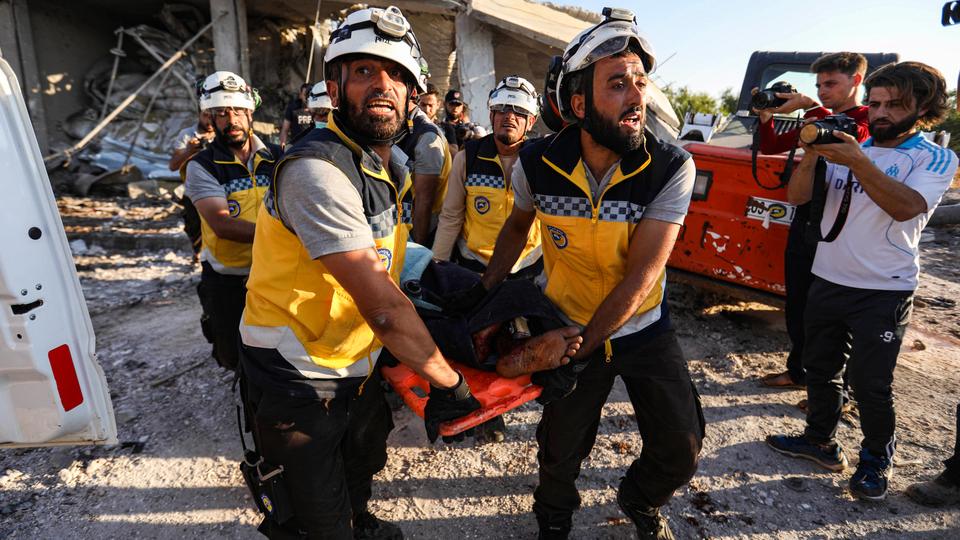
Peace Without Giving In
In 1981, Roger Fisher and William Ury published the first edition of their seminal non-fiction best-seller titled Getting to Yes: Negotiating Agreement Without Giving In. This brief but brilliant treatise advises would-be negotiators on how to determine the “Best Alternative to a Negotiated Agreement” – or BATNA – of their opponents. That is, what can antagonists realistically expect to gain from continuing their violent conflict rather than coming to a reasonable compromise solution through negotiation.
In a recent Lima Charlie News article, entitled “Syrian Endgame – The Hard Truth” (May 14th, 2019) I, along with my co-author John Sjoholm, attempted to define the BATNAs of the key players in Syria. To help with this, we sought to determine the primary goals and interests of those identified players.
Vladimir Putin’s BATNA is what makes him, and Russia, the Syrian Civil War’s victor ludorum. As “winner” Russia gains an increased influence throughout the Middle East. Yet that victory has come at a significant cost both in resources and international condemnation.
Turkish President Recep Tayyip Erdogan is also seeking a BATNA that may gain increased regional clout for Turkey, but at a price of engaging in a never-ending and unpopular war against the Kurds, both at home and abroad.
Syrian President Bashar al Assad will likely regain a tenuous control of Syria, but as part of a proxy government of the Kremlin. More so, Moscow will retain the option of eliminating Assad, his clan, and even the Alawis sect, both politically and physically, if it is deemed optimal to minimize a draining long-term conflict.
In turn, Iran may seek to secure its supply lines through Syria to its various allies, many of which are in conflict with U.S.-supported Israel. Yet, the costs of continued large scale deployment of Iranian assets in Syria is likely to spiral out of control. A continued Iranian presence in Syria is also likely to put Tehran on an escalating collision course with Washington. The U.S. has continued to increase sanctions and may possibly implement its ongoing threat of force.
For the relatively organised Syrian Opposition forces, moderate and less radicalized alike, their continued fighting on the ground, while enduring constant bombardment from the air, offers little gain. While facing the prospect of thousands of innocent civilian casualties, these forces risk further loss of credibility to more radical Salafist Jihadist militia entities such as al Qaeda and the Islamic State. As for the United States, it has absolutely nothing to gain from further fighting and the deployment of its military on Syrian territory.
The whole world has only the prospect of widespread slaughter and the resulting chaos from nearly four million Syrian refugees fleeing the Idlib enclave. This includes risk of the destabilization of neighboring Lebanon.
Everyone, as discussed in “Syrian Endgame – The Hard Truth”, has a lot to gain from a negotiated settlement, while no one, except the radical Jihadis, has much to look forward to from continued warfare. The question now, is how to structure a negotiation to achieve a successful peace that will benefit everyone but the radical elements. This includes the Kurdish militia forces and their political entities, even though they would emerge as major losers in any settlement. The difference for the Kurds is if they are to gain anything, their solution must be a broader regional one.
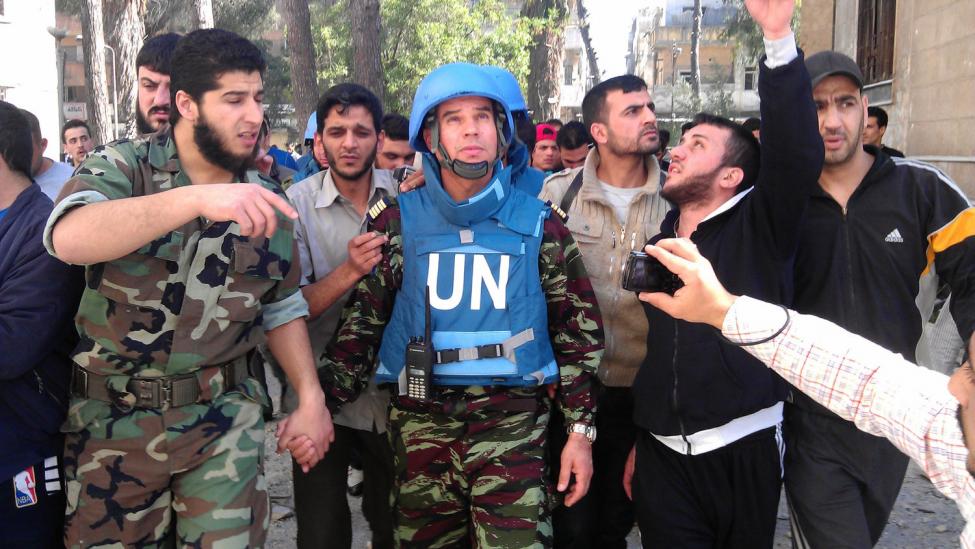
The Elements of a Successful Settlement
Successful peace negotiations should include the participation of all but the most incorrigible players. They should also include a credible outside actor who is seen as substantially unbiased, one that would organize and host the discussions, and act as a guarantor to monitor the fulfillment of an agreement. Russia and the United Nations have both tried to jumpstart negotiations but have failed because one was not trusted for having played too much of a direct role in the conflict, and the other has gained a reputation for being impotent.
“Pre-cooking” the elements of an agreement acceptable to the parties is an absolute necessity. The sine qua non will have to be a guarantee that there would be no United Nations Security Council (UNSC) veto of the deal. Before the first word is spoken at a peace conference, at least among Russia, the United States, and their allies and proxies, there must be agreement as to the main parameters of the arrangements. This does not mean that all, or even most, of the actors will be completely satisfied. As Bosnian President Alija Izetbegovic said at Dayton in 1995, “this is an unjust peace, but my people need peace.”
A Field of Possible Organizers and Guarantors
The United Nations
The United Nations has a traditional role in organizing and following up on peace negotiations. While its credibility has suffered in Syria during the past eight years, it has sometimes shown a significant capacity to play the honest broker in other conflicts. El Salvador and Liberia are two examples. In the former, however, the UN did not attempt to enforce the peace. In the latter, the success was almost completely personality-dependent due to the unique choice of Ambassador Jacques Paul Klein who had already proven himself in Croatia and Bosnia and Herzegovina. Unfortunately, the selection of such a strong Senior Representative of the Secretary General or SRSG is exceedingly rare.
Still, the United Nations might prove useful as a convener so long as there is substantial advance agreement and it is understood up front that the negotiation and enforcement will really be driven by the stronger participants. It would be unlikely that the United Nations would be able to stand up a strong and independent peacekeeping force. Yet any agreement could still lay out substantial roles for UN agencies like the Office for the Coordination of Humanitiarian Affairs (OCHA) and the United Nations High Commissioner for Refugees (UNHCR).
The United Nations Security Council might also call upon the Secretary General to take the lead in organizing a separate international conference to discuss the exceptionally thorny issue of Kurdish statehood aspirations. The fact that the Kurds number up to 35 million people spread over the territories of four countries where they represent sizeable, often restive, minorities, cries out for international resolution. In Turkey, for example, they make up 18% of the population, and there has been open conflict between the Turkish Government and the Kurdistan Workers’ Party (PKK). The Kurdish question will be exceedingly difficult to resolve, and, as such, should be kept from complicating the already-complex Syria peace negotiation. A good case could be made that the United States, having used Kurdish forces as proxies against ISIS in both Syria and Iraq, should be a major sponsor of this negotiation.
[T]his is an unjust peace, but my people need peace.”
-Bosnian President Alija Izetbegovic
The Major Powers
Russia and the United States, possibly with Turkey and Iran as supporting actors, have emerged in this conflict as the “Major Powers”. There is precedent for a Major Power taking the lead in peace negotiations as a third party, even after having played a combat role in a conflict. A primary example is the role played by the United States in brokering the 1995 Dayton Agreement to the war in Bosnia and Herzegovina.
At the time, Russia was very weak, and the United Nations was almost totally discredited. While the U.S. organized, hosted and dominated the Dayton negotiations, it brought in the EU as bit players (causing resentment and lack of coordination), while engaging international organizations such as the Organization for Security and Cooperation in Europe (OSCE), the North Atlantic Treaty Organization (NATO), and various United Nations agencies to play specific roles. The result of this one-party-dominated process was a complicated, disorganized plan that was nearly dead on arrival, at least so far as the Bosnian Serbs were concerned.
On May 29th, the European Union called for a ceasefire in the Idlib region and said that Russia, Turkey, Iran and the Syrian Government must protect the population. From the perspective of safeguarding civilian populations in Northwestern Syria, it appears the EU has accepted the role of Major Powers as guarantors. By June 12th, the Russian military claimed that a ceasefire – the third since commencement of the Dawn of Idlib operation – had been brokered with Turkey. The ceasefire, however, failed immediately with Russia and the Syrian regime resuming intensive shelling and airstrikes. Turkish observers in Idlib also continued to come under mortar fire from territory controlled by Syrian government forces, with several casualties reported just last week. In response, Turkish forces shelled government-held villages.
The resulting problems with the Big Power-imposed 1995 Dayton Accords are not a reason to believe that an effort by Russia and the United States now in Syria would necessarily be doomed to failure. But they most certainly justify caution.
Russia has been far more of a combatant in Syria than the United States was in Bosnia and Herzegovina. Its Iranian allies are possibly even more hated than the Assad Regime itself, and President Putin probably has a less favorable reputation among necessary international contributors than President Bill Clinton had in 1995.
Yet, given enough self-interest and goodwill on the part of President Putin and President Trump, their cooperation could lead to a successful conclusion. Together, they could have tremendous influence on all relevant actors, and might even improve the bi-lateral relationship in the process. Furthermore, their collaboration would probably avoid any threat of a UN Security Council veto and diminish the power of possible spoilers. However, widespread ill will toward both of them, and their allies, and their vastly different interests and policy objectives, could possibly sink a lasting peace.
If, indeed, Russia and the United States were to find enough common ground, they could certainly impose peace. This would increase to a great extent if the Americans took the lead in the Northwest and on the Kurdish question, while the Russians were left to handle the rest of Syria and control both Iranian ambitions and Assad’s desire for total victory and a return to the pre-war status quo.
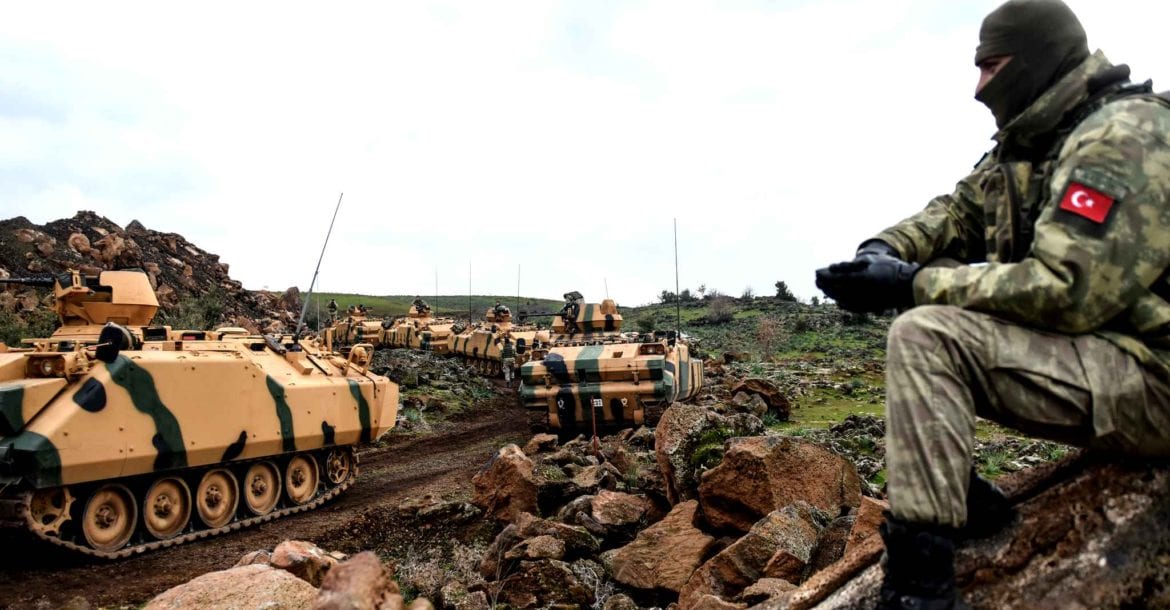
Regional Organizations
This week the European Union issued a statement in which it called on all sides “to restore an immediate cease fire” and ensure “the protection of and unhindered humanitarian assistance to the civilian population, and giving space for the start of a genuine Syrian political process.” According to the statement:
“The EU is deeply concerned by the situation in the north-west of Syria, namely in the provinces of Idlib and northern Hama. After more than eight years of conflict the Syrian population continues to suffer indiscriminate shelling, airstrikes, bombing and attacks. Military strikes by Syrian regime forces – supported by Russia – have destroyed IDP camps, schools and health facilities, which should be the very safest spaces. More than 230 civilians have lost their lives, more than 330,000 have fled in just six weeks, and three million more remain at risk.”
Probably the only regional organization with enough resources, neutrality and political clout to take the lead on negotiations and implementation is the European Union. While some members have been involved in a combat role in Syria, this has been almost exclusively in opposition to ISIS. EU members have engendered little or no bitterness among either the more moderate Opposition or the Assad Government.
The EU also has a strong interest in avoiding the catastrophic chaos that would result from continued war and the possibility of an all-out military assault on the Idlib enclave resulting in millions more desperate refugees flooding across its borders. It has the resources necessary to play a major role in reconstruction and refugee return.
While President Putin has strategic concerns with the EU, if Russia was left to deal with Assad-controlled territory as he saw fit, and it could ensure the long-term security of Russia’s air and sea military bases in Syria, Putin would undoubtedly welcome the resources the EU could bring to bear. Both he and President Trump might be happy for someone else to take responsibility for the mess to which they have both contributed.
There is certainly enough technical and political expertise within the European Union to help solve Syria’s post-war problems, but it would require that other nations provide military forces to ensure the peace. This could fall upon Turkey, with the Opposition forces reconstituted, perhaps as a paramilitary police force in the Northwest, with Russian and Syrian Arab Army assets situated elsewhere. As in any other option, the U.S. and certain sympathetic EU allies would have to tend to the resolution of the Kurdish question on a regional basis and soothe any dissatisfaction or concern on the part of President Erdogan.
The biggest challenge for the European Union in playing a leading role would be its own frequent lack of consensus, especially in light of Brexit, and a number of disagreeable national leaders. Avoiding another surge of migrants, could, however, sufficiently motivate the members to facilitate a peaceful solution.
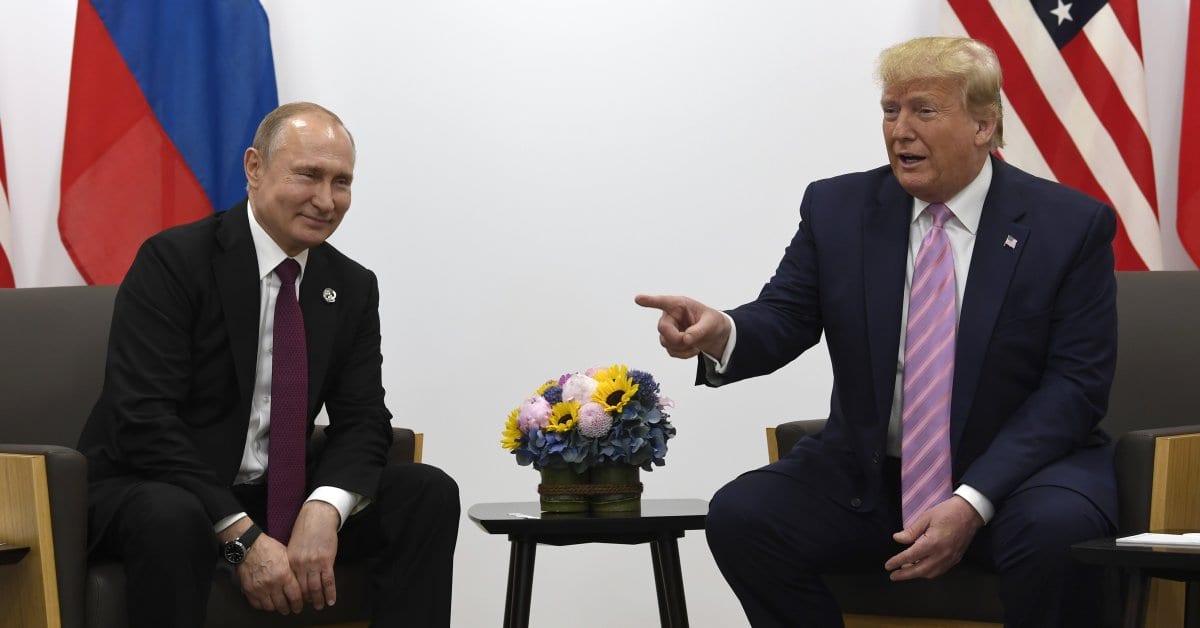
Moving Forward
It seems most reasonable that Russia and the United States should cooperate towards building a lasting peace in Syria. President Putin, obviously, will be the primary leader of any effort given the far greater resources Russia has committed to Syria, not to mention the greater influence Russia has over its proxies. This calls for a well-planned, logical approach to a myriad of problems, something the current American Administration is not generally known for, but hopefully can rise to the occasion.
Reportedly, both the U.S. and Russia remain engaged in high-level talks, but each must give up the desired goal for either a reunified Syria under Assad (Russia) or a reunified Syria without Assad (United States).
At this week’s G20 Summit in Osaka, Japan, President Putin assured that he and President Trump had maintained discussions concerning Syria, while he also criticized German Chancellor Angela Merkel for allowing a million refugees, mostly Syrians, to settle in Germany. This Saturday, while in Osaka, Chancellor Merkel announced that the next summit on Syria with Russia, Germany, France, and Turkey is planned for this year in Istanbul. “We want to stay abreast of the situation in Idlib and the situation around the refugees.”
The European Union, while certainly unwilling and probably incapable of fielding an effective peacekeeping force, can be relied upon to provide extensive reconstruction and refugee resettlement funding, as well as technical expertise democratization training at least in the Idlib region.
Turkey has also shown a willingness to stand up to Russia and Syria on recent ceasefire violations, and with the help of more moderate Opposition forces can be counted upon to move against Jihadist spoilers. The big question is whether the Turks and Americans can overcome recent disagreements over the purchase of SA-400 missiles and the disruptive effect it will have on the interoperability of the joint NATO air defense infrastructure. Even more important is the question of whether they can use cooperation in Northwestern Syria to inspire greater rapprochement and restore good diplomatic relations that began all the way back in 1830 and which made Turkey a NATO mainstay during the Cold War.
The Iranians and Kurds remain wild cards. So far, Iran does not appear to be playing a role in the Russo-Syrian offensive in the southern part of the Idlib enclave, which may presage a decrease in their combat role in the conflict while they prepare for a possible confrontation with the United States. It remains to be seen what Iran will demand in the negotiations as the price for its investment in the conflict. The Kurdish YPG and their cousins in the PKK will need to be given reasons to hope for some resolution of their demands for autonomy if they are not to disrupt regional peace through increased conflict with the Turkish military.
At any rate, time is running out if the worst consequences of an all-out fight to the death in Northwest Syria is to be avoided. It is time to put aside unrealistic demands and find a way for “Getting to Yes.”
William Stuebner, for LIMA CHARLIE WORLD
[Additional edits by John Sjoholm and Anthony A. LoPresti] [Main Image: Reuters]
[Subscribe to our newsletter for free and be the first to get Lima Charlie World updates delivered right to your inbox.]
William Stuebner served in the United States Army for twenty years, first in the Infantry and then as a military intelligence officer. The last five years of his career revolved around the wars in Central America where he first led a special intelligence team and then worked as the El Salvador desk officer for the Department of Defense. He was also an assistant professor in the Social Sciences Department of the United States Military Academy where he taught politics and political philosophy.
Stuebner’s Balkans work began in May 1992, shortly after the commencement of hostilities in Bosnia and Herzegovina and continues to this day. His assignments included: Humanitarian Assistance Officer for the Department of Defense; Bosnian Field Representative for the Office of Foreign Disaster Assistance, United States Agency for International Development; Expert on Mission, Office of the Prosecutor, International Criminal Tribunal for the Former Yugoslavia (twice); Senior Deputy Head of Mission for Human Rights and Chief of Staff, Organization for Security and Cooperation in Europe Mission to Bosnia and Herzegovina. He has also headed two Non-Governmental Organizations dealing with international criminal justice and peace building.
Lima Charlie World provides global news, featuring insight & analysis by military veterans, intelligence professionals and foreign policy experts Worldwide.
For up-to-date news, please follow us on twitter at @LimaCharlieNews
In case you missed it:

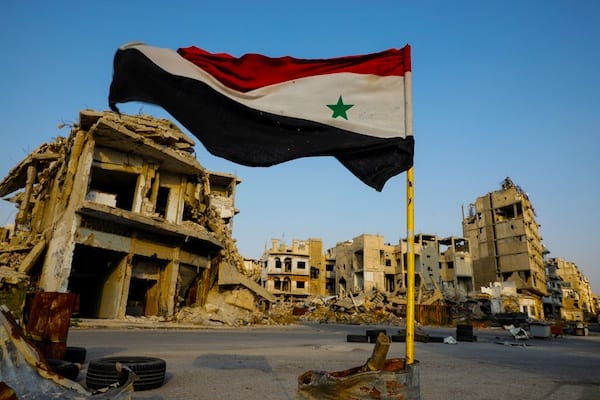
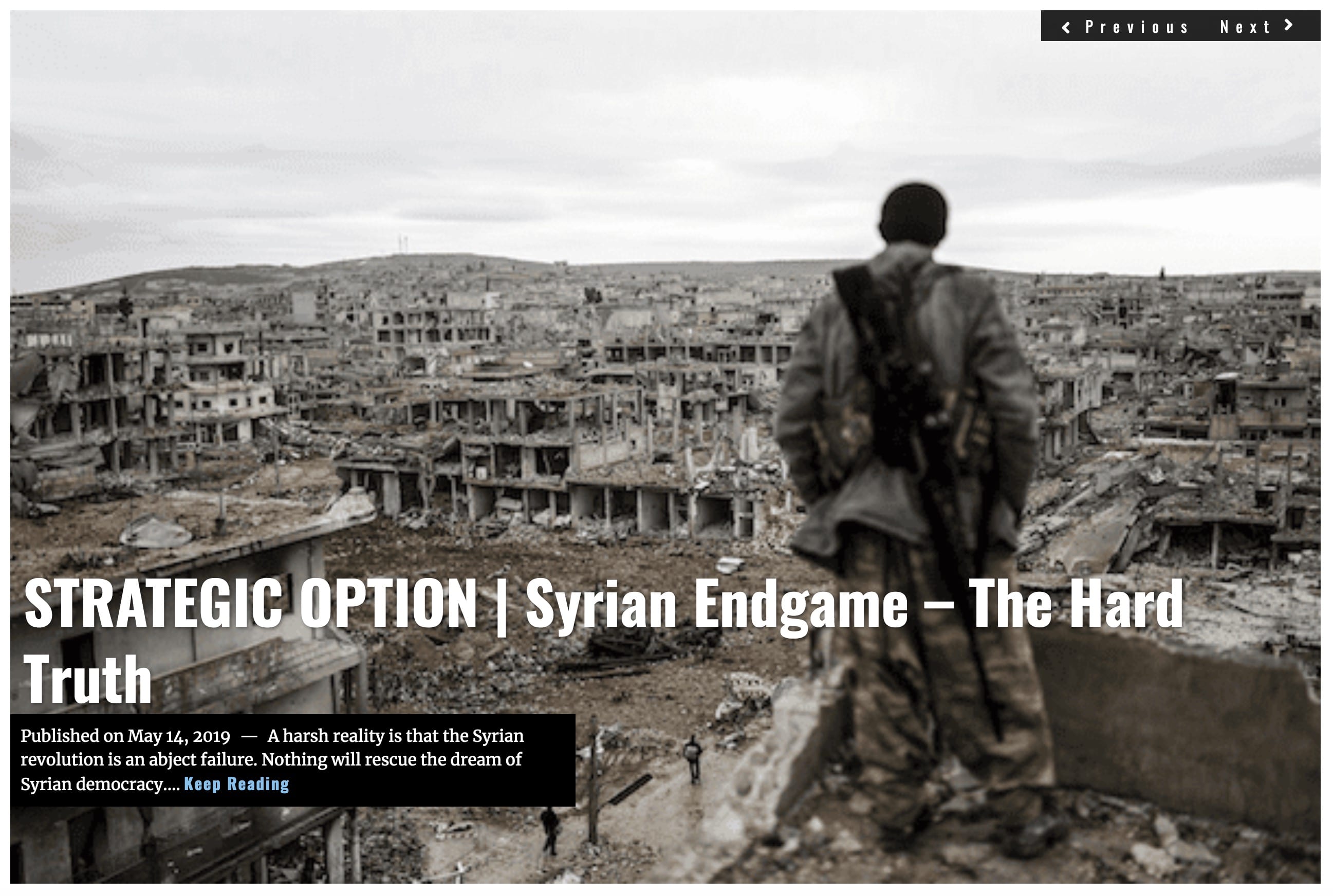


![A Trump war crime pardon dishonors us all [Lima Charlie News]](https://limacharlienews.com/wp-content/uploads/2019/05/A-Trump-war-crime-pardon-dishonors-us-all-Lima-Charlie-News-480x384.png)

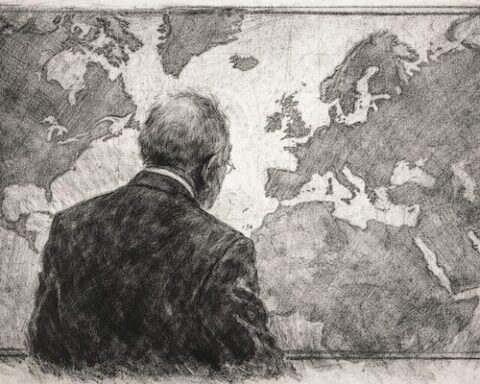

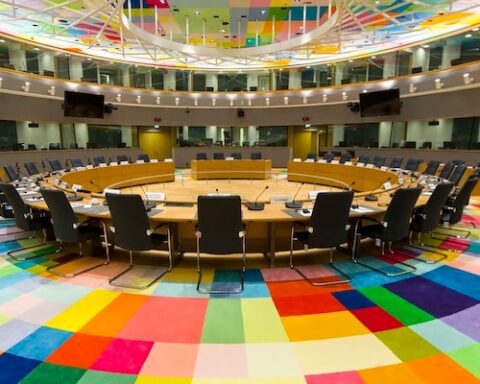

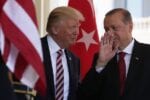

“Turkey has also shown a willingness to stand up to Russia and Syria on recent ceasefire violations, and with the help of more moderate Opposition forces can be counted upon to move against Jihadist spoilers.” ????
Get real. Turkey is the primary sponsor of ISIS, Jabat al Nusra and HTS. The Turks have killed tens of thousands of Syrians, beheaded hundreds, used rape as a weapon of war and are currently anexing swathes of northern Syria with their jihadist militias.